Ssam
쌈, ssäm, wrapped
Ssam are dishes in Korean cuisine where one food is wrapped in another. A common variety is meat such as pork wrapped in a leafy vegetable. It is often accompanied by the condiment ssamjang and can also be topped with raw or cooked garlic, onion, green pepper, or a banchan (small side dish) such as kimchi. Ssam is usually bite-sized to prevent spilling of the fillings. Under the Buddhist influence that was especially strong during the Kingdom of Goryeo, killing and eating an animal was highly discouraged. This has led to numerous Korean vegetable dishes, especially ssam, to be created and emerge as a prominent dish during the era. After its emergence, the dish was mentioned numerous times in ancient Korean records.
Source: Wikipedia
Recipes
:max_bytes(150000):strip_icc()/__opt__aboutcom__coeus__resources__content_migration__serious_eats__seriouseats.com__images__2012__10__20121002-hocks-trotters-bo-ssam-overhead-5e02b3fccb81404680c7709376bd778a.jpg)
The Nasty Bits: Momofuku-Style Bo Ssam, But With More Hocks and Trotters
A few weeks ago, I was sitting in Momofuku with friends eating a whole pork shoulder, slow roasted so the skin turns out crispy and the flesh very tender, and served with rice, kimchi, and scallion oil. I was enjoying myself immensely except for one tiny...
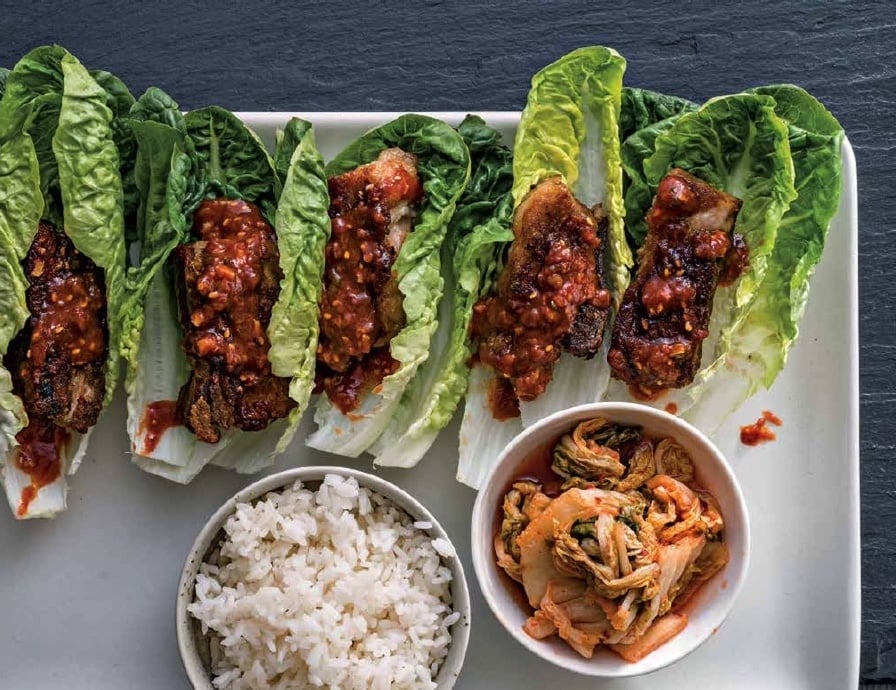
Ssam Jang: The Secret Sauce of Korean Grilling
Here's the classic Korean sauce for grilled meats rolled up in lettuce leaves. This savory, slightly sweet and spicy ssam jang recipe includes doenjang (Korean miso), gochujang (Korean chile paste), green onions, garlic, and sesame oil. It's perfect for...

Ssamjang (Korean spicy dipping sauce) recipe by Maangchi
I am introducing Ssamjang to you today, a kind of Korean dipping sauce. I've posted ssamjang recipes in the past, always as a side dish for things like grilled beef (soegogi gui) and grilled pork belly (samgyeopsal gui), but the ratio can vary depending...
:max_bytes(150000):strip_icc()/GettyImages-482388327-57a753bd3df78cf45906981a.jpg)
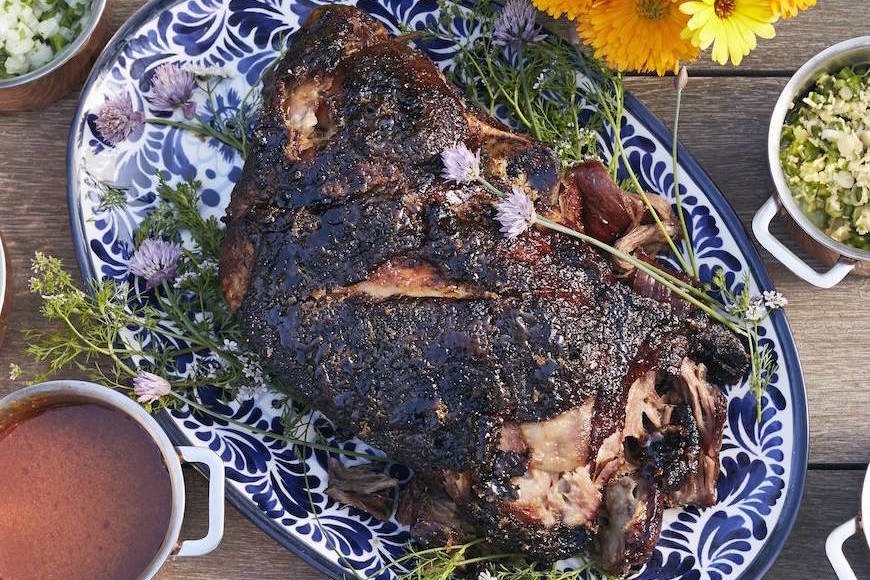
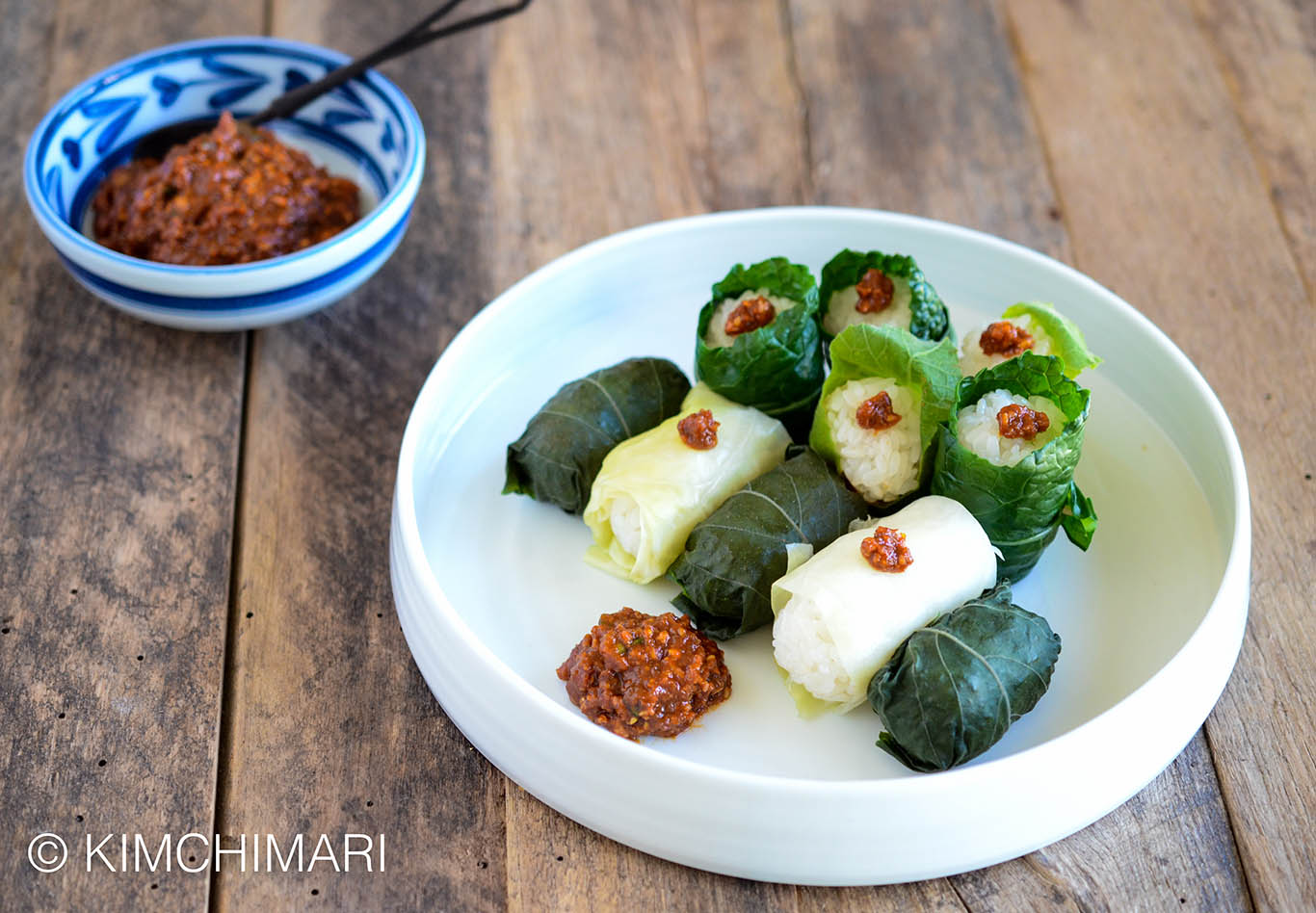



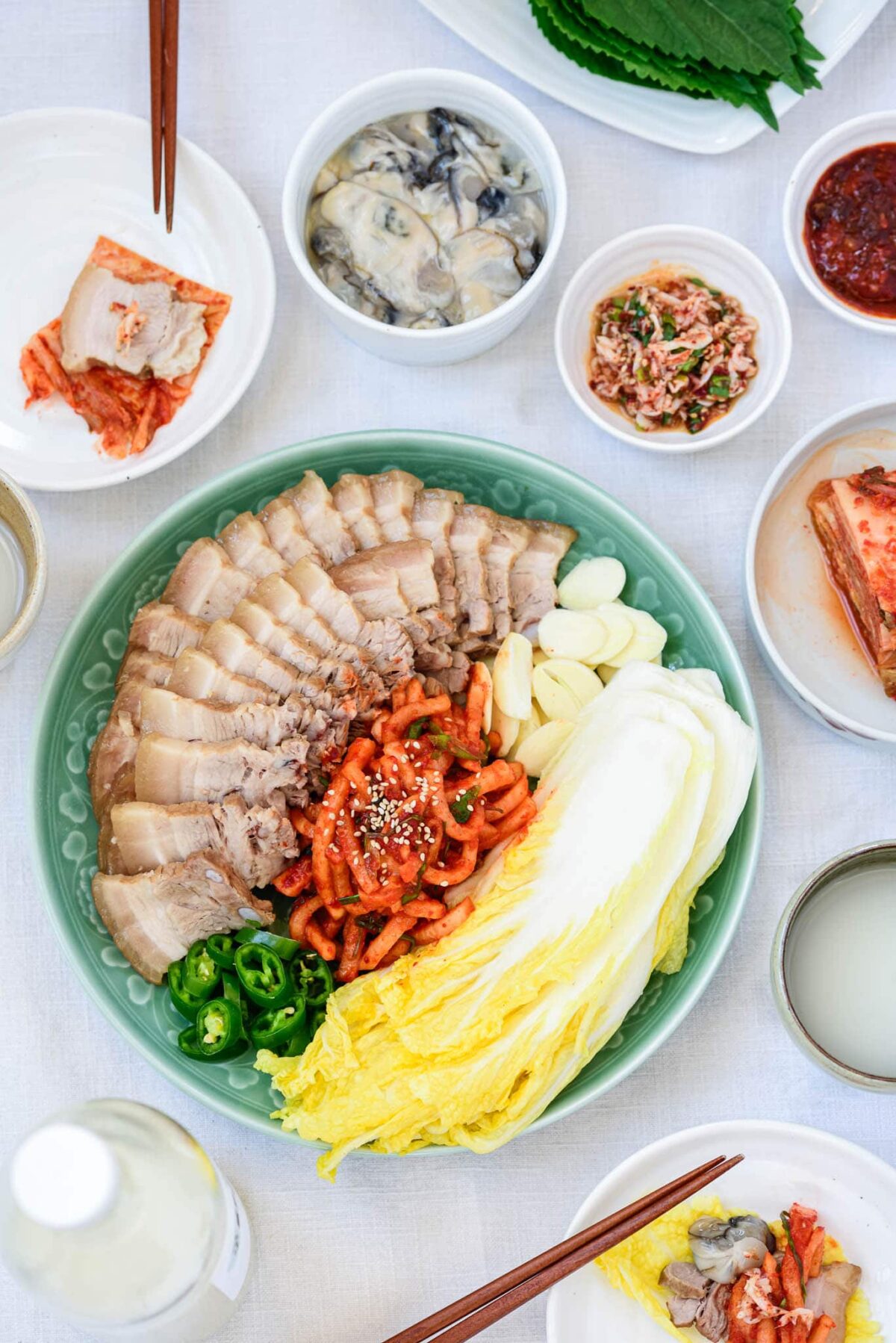
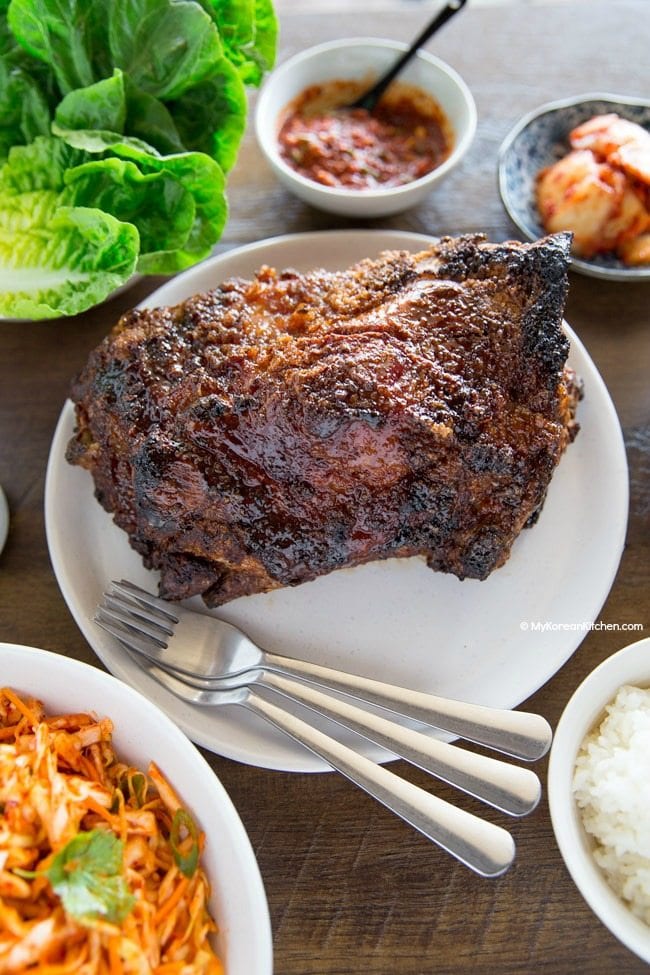

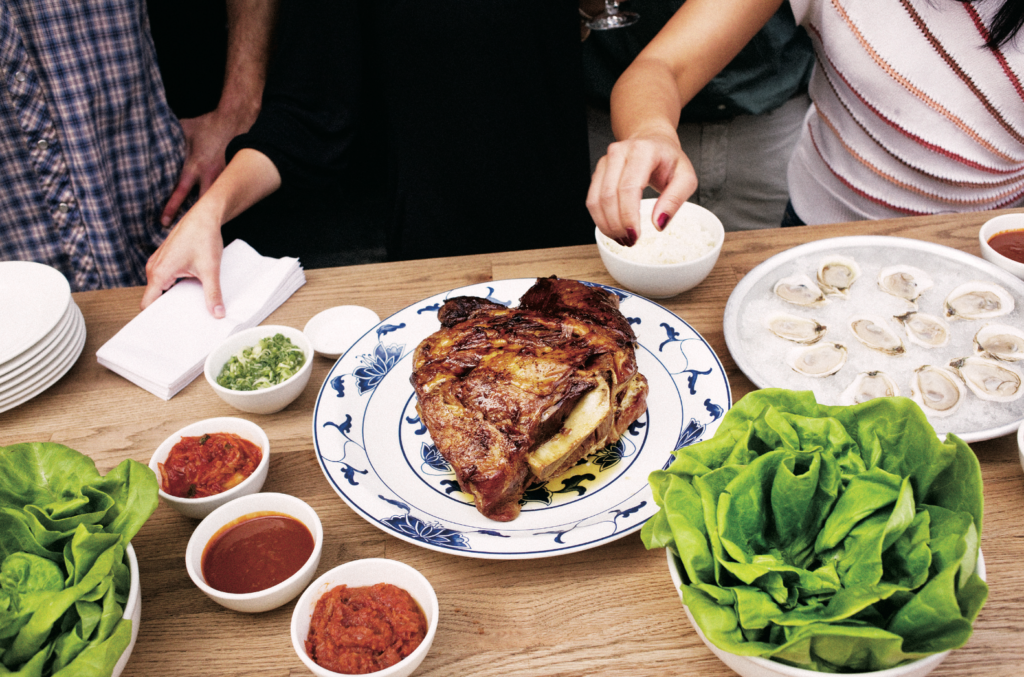
:max_bytes(150000):strip_icc()/__opt__aboutcom__coeus__resources__content_migration__serious_eats__seriouseats.com__2018__12__20181204-bossam-vicky-wasik-9-cda3a2aec3584316b47a152857a435ff.jpg)
:max_bytes(150000):strip_icc()/ar_placeholder-6681e9afa32045a78d8f2632de8b28b7.jpg)




:max_bytes(150000):strip_icc()/korean-ssamjang-recipe-2118813-hero-01-c2cfd5ea0abb4b608198cbc12a7bb288.jpg)